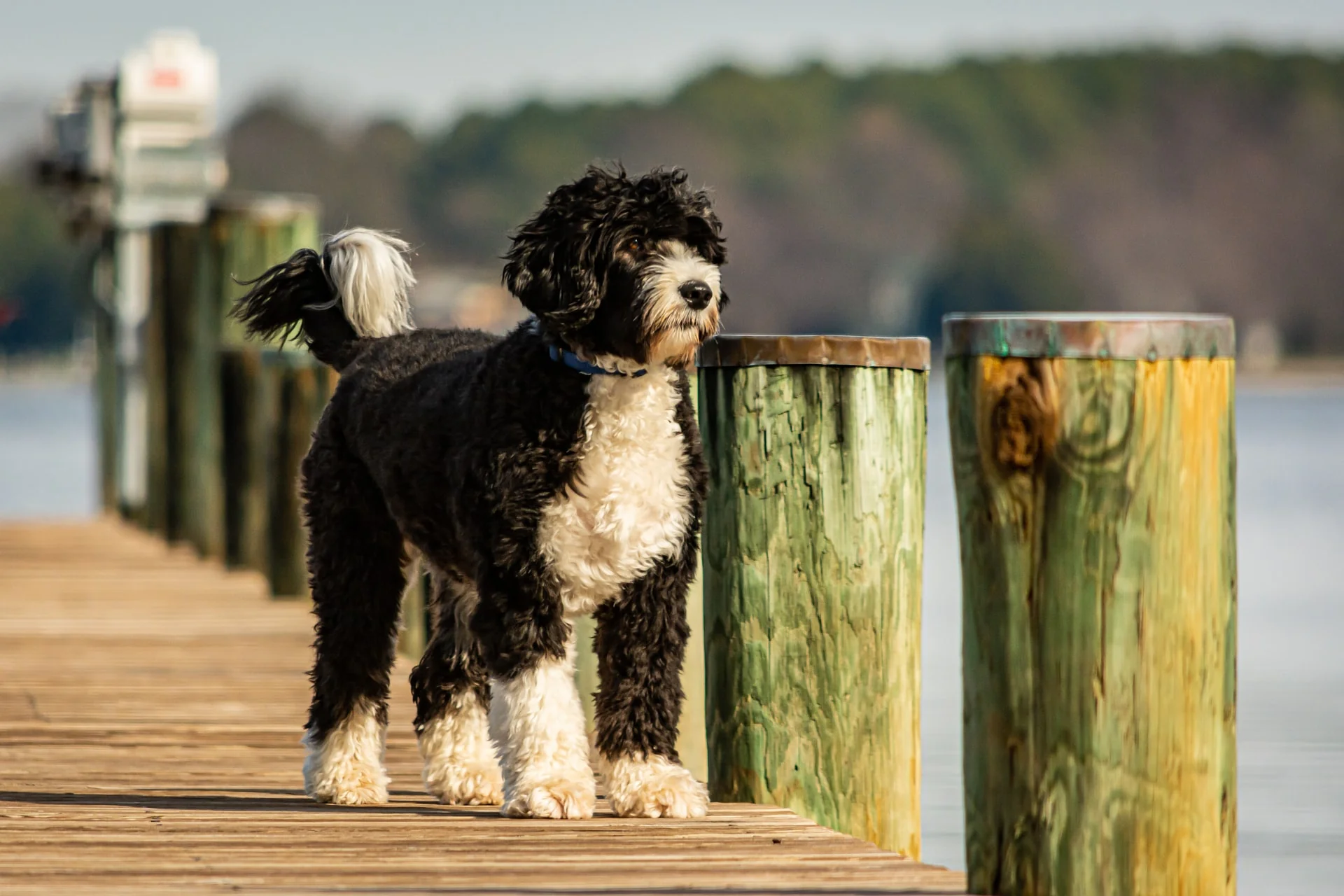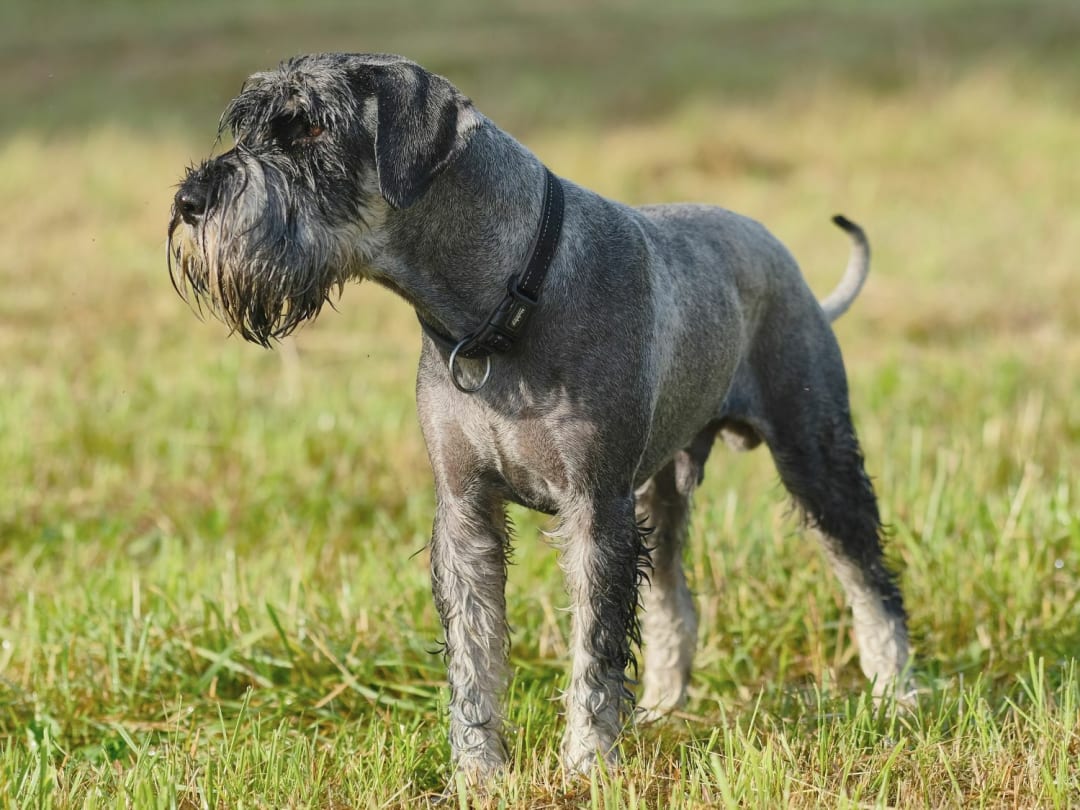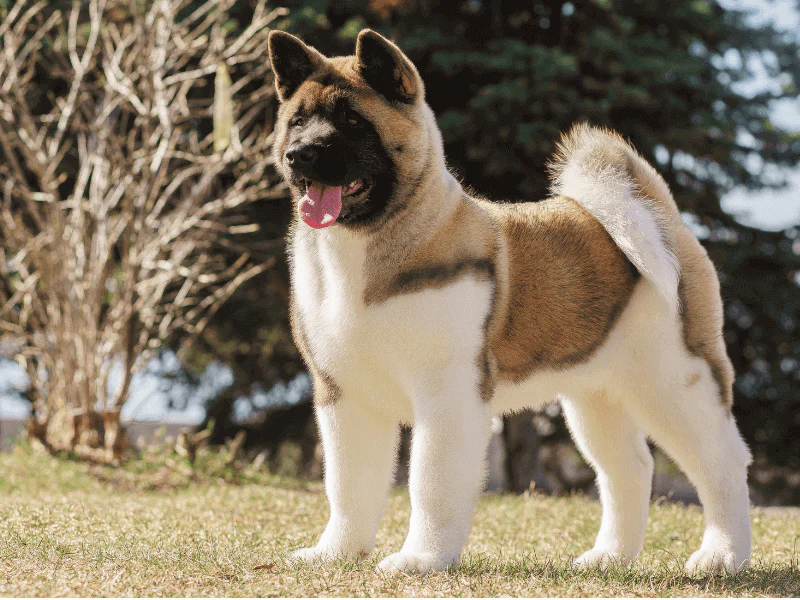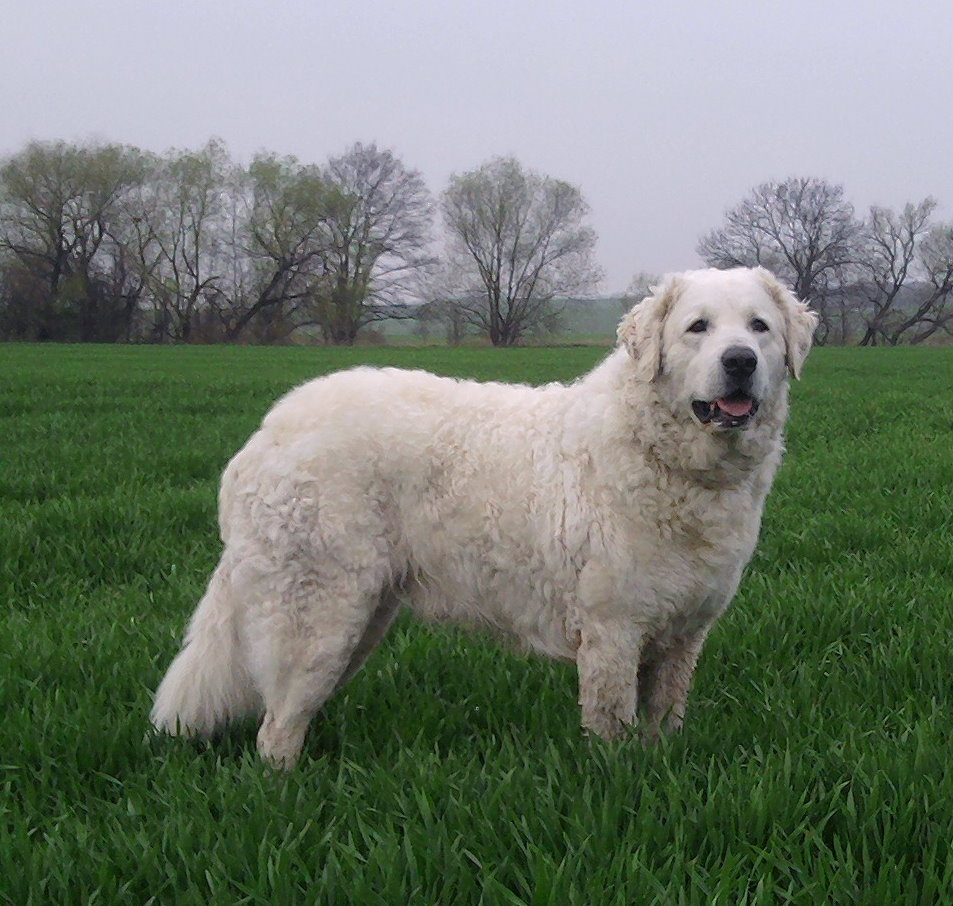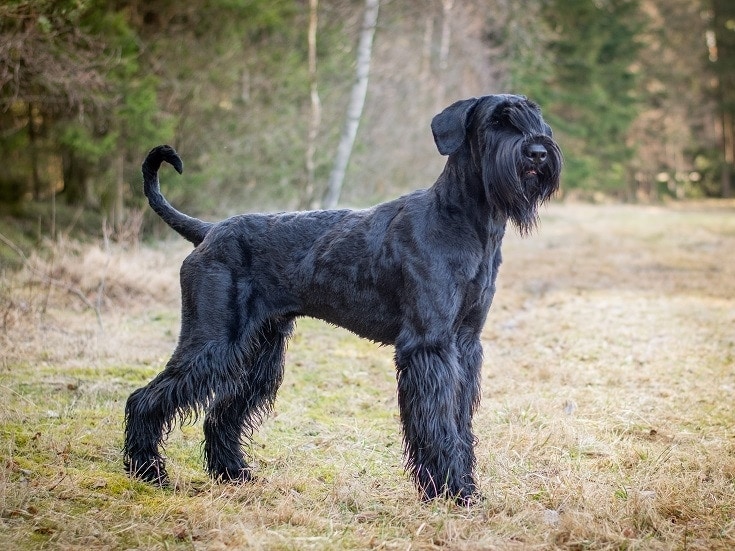Meet the Portuguese Water Dog – The Swimming Superstar with a Heart of Gold
The first time I saw a Portuguese Water Dog (or “Portie” as fans lovingly call them), I honestly thought it was some kind of fancy Poodle with a funky haircut. Standing there with its distinctive curly coat, athletic build, and intelligent eyes, it practically radiated energy and enthusiasm. It was only later I discovered this breed’s fascinating history as a fisherman’s best friend and its more recent claim to fame as the Obama family’s White House companions.
As someone who’s spent way too many hours researching dog breeds (yes, I’m that person who reads dog encyclopedias for fun), I’ve developed a serious appreciation for these water-loving working dogs. They’re the perfect blend of athletic ability, intelligence, and affectionate companionship—all wrapped up in a hypoallergenic, non-shedding package that’s made them increasingly popular in recent years.
Whether you’re considering adding a Portuguese Water Dog to your family or just curious about these charismatic canines, this guide will dive deep into everything you need to know about the breed. From their seafaring origins to their distinctive temperament and care needs, I’m covering it all. So grab a towel (you might need it when talking about these water enthusiasts) and let’s jump in!
Maritime History: From Fishing Boats to the White House
The Portuguese Water Dog’s history is as rich and fascinating as the coastal regions they originally called home. These remarkable dogs have a heritage deeply intertwined with the sea and the fishermen who relied on them for centuries.
Ancient Working Origins
The exact origins of the Portuguese Water Dog (Cão de Água in Portuguese, literally “dog of water”) are somewhat mysterious, though most experts believe they originated in the Algarve region of Portugal. Some theories suggest they may have descended from ancient dogs that came from the Central Asian steppes, eventually making their way to Portugal’s coast.
What we know for certain is that by the 13th century, Portuguese Water Dogs were firmly established as invaluable working companions to the Portuguese fishermen. These versatile canines performed a variety of essential tasks:
- Herding fish into the fishermen’s nets
- Retrieving broken nets or equipment that fell overboard
- Carrying messages between ships or from ship to shore
- Swimming through the cold waters of the Atlantic, even accompanying fishing vessels traveling as far as Iceland
Their water-resistant coats, muscular builds, and webbed feet made them perfectly suited for these maritime jobs. They became so integral to the fishing industry that they were considered indispensable crew members on many Portuguese fishing boats.
Near Extinction and Revival
By the early 20th century, as fishing methods modernized and the traditional Portuguese fishing industry declined, the Portuguese Water Dog faced a serious threat of extinction. Their numbers dwindled drastically as their services were no longer required in the same capacity.
Fortunately, in the 1930s, a wealthy Portuguese shipping magnate named Dr. Vasco Bensuade recognized the breed’s precarious situation and took action. He began a dedicated breeding program to preserve these remarkable dogs, effectively saving them from disappearing entirely.
The breed eventually made its way to other parts of the world, arriving in the United States around 1958. The Portuguese Water Dog Club of America was formed in 1972, and the breed gained recognition from the American Kennel Club in 1983.
Presidential Fame
While Portuguese Water Dogs had a dedicated following, they remained relatively unknown to the general public until they received perhaps the most high-profile endorsement possible. In 2009, the Obama family welcomed their first Portuguese Water Dog, Bo, to the White House, followed by Sunny in 2013.
The Obamas chose the breed partly due to their daughter Malia’s allergies, as Portuguese Water Dogs are known for being hypoallergenic. The publicity surrounding the First Dogs catapulted the breed into the spotlight, significantly increasing their popularity and recognition across the country.
Today, while still not among the most common breeds, Portuguese Water Dogs have secured their place as beloved family companions, therapy dogs, and competitive sport dogs—quite a journey from their humble beginnings on Portuguese fishing vessels!
Distinctive Appearance: Curls and Character
The Portuguese Water Dog has a look that’s both functional and charming, reflecting their working heritage while also capturing hearts with their expressive eyes and distinctive coat. Let’s break down their physical characteristics:
Size and Build
Portuguese Water Dogs are medium-sized, solidly built dogs with a strong, muscular body that reflects their working heritage. Males stand 20-23 inches tall at the shoulder and typically weigh between 42-60 pounds. Females are slightly smaller, standing 17-21 inches tall and weighing 35-50 pounds.
Their build is robust and substantial without being bulky—they’re balanced and athletic, with a body designed for swimming and endurance. They have a deep chest, moderate bone, and a level topline that gives them a strong, capable appearance.
That Distinctive Coat
Perhaps the most recognizable feature of the Portuguese Water Dog is their unique coat. Unlike many water dogs, they don’t have an undercoat. Instead, they have a single coat that comes in two distinct varieties:
- Curly: Compact, cylindrical curls that are somewhat lusterless
- Wavy: Gently falling waves with a slight sheen
Both coat types are weather-resistant and waterproof, helping to protect the dog from cold water and harsh conditions. The coat continues to grow throughout the dog’s life, similar to human hair, and requires regular maintenance to keep it from matting.
Portuguese Water Dogs come in several colors, including:
- Solid black
- Solid brown (various shades from dark to light)
- Solid white (though rare)
- Black with white markings
- Brown with white markings
Many Porties have white markings on their chest, paws, or chin, and some have the distinctive white blaze on their muzzle.
Traditional Clips
Portuguese Water Dogs are traditionally groomed in one of two distinctive clips, both with historical significance:
- Lion Clip: The hindquarters and muzzle are clipped close to the skin, leaving the rest of the body with full hair. This traditional cut was practical for working dogs—the shaved hindquarters reduced drag in the water, while the full coat on the chest and vital organs provided protection from the cold.
- Retriever Clip: The entire coat is clipped to about one inch in length, with the tail tip left full. This lower-maintenance option is popular for pet Porties.
Facial Features and Expression
Portuguese Water Dogs have a strong head with a broad skull, slightly longer than it is wide. Their expression is alert, intelligent, and attentive, with medium-sized, slightly almond-shaped eyes that are typically black or various shades of brown.
Their ears are set slightly above the line of the eyes, heart-shaped, and thin, hanging close to the head. This design helps keep water out when swimming—another practical adaptation for their working role.
Perhaps most endearing is their expressive face, which seems to convey a range of emotions from playful mischief to deep contemplation. Many Portie owners swear their dogs display almost human-like expressions, adding to their charm and connection with their human families.
Temperament: Smart, Spirited, and Social
The Portuguese Water Dog’s temperament is as distinctive as their appearance, combining the best qualities of a working dog with those of an affectionate family companion. These dogs have a personality that keeps their owners on their toes!
Intelligence and Trainability
Portuguese Water Dogs are exceptionally intelligent dogs, ranking high in canine cognitive abilities. They’re quick learners who pick up new commands and tricks with impressive speed. This intelligence, combined with their natural desire to please, makes them highly trainable for everything from basic obedience to advanced tasks.
However, their smarts come with a catch—they can get bored easily and may become creative (or mischievous) when understimulated. A bored Portie might redesign your living room furniture or develop their own archaeological dig in your backyard if left without appropriate mental challenges.
Their problem-solving abilities are remarkable, and they often approach training as a collaborative process rather than simply following commands. They respond best to positive reinforcement methods, engaging training sessions, and consistency. Harsh methods or repetitive drills will likely backfire with this sensitive yet independent-thinking breed.
Energy Level and Playfulness
True to their working heritage, Portuguese Water Dogs are energetic, athletic dogs with significant exercise needs. They maintain a puppy-like enthusiasm for play well into adulthood, always ready for the next adventure or game.
Their playfulness is one of their most endearing qualities—they have a genuine sense of humor and seem to enjoy making their humans laugh. From playful “zoomies” around the house to elaborately tossing and chasing their toys, Porties approach life with joyful exuberance.
This playful nature extends to their love of water. Most Portuguese Water Dogs are natural swimmers who will seek out any available water source, from lakes and pools to puddles and even water bowls. Their enthusiasm for swimming is genetic—after all, it’s what they were bred for!
Family Bonds and Social Nature
Portuguese Water Dogs form deep, loving bonds with their family members. They’re typically affectionate and devoted, preferring to be near their people whenever possible. While not necessarily “velcro dogs,” they do enjoy being involved in family activities and can become unhappy if left alone for extended periods.
With children, well-socialized Porties are typically patient, gentle, and protective, making them excellent family dogs. Their playful nature matches well with the energy of children, though as with any breed, interactions between dogs and young children should always be supervised.
Towards strangers, Portuguese Water Dogs may initially be somewhat reserved or cautious, but they usually warm up quickly once properly introduced. This mild protective instinct makes them good watchdogs who will alert you to newcomers, but they’re not typically aggressive or overly suspicious.
Compatibility with Other Pets
Portuguese Water Dogs generally get along well with other dogs, especially when raised with them from puppyhood. Their social nature extends to canine companions, and many enjoy the company and play opportunities that other dogs provide.
With cats and other pets, experiences vary. Many Porties can live harmoniously with cats, particularly if introduced to them at a young age. Their hunting instinct isn’t as pronounced as in some breeds, but early socialization and proper introductions are still important for multi-pet households.
Health and Lifespan: What to Expect
Portuguese Water Dogs are generally healthy dogs with good longevity for their size, but like all purebred dogs, they can be prone to certain health conditions. Understanding these can help you provide the best care and ensure your Portie lives a long, healthy life.
Lifespan
The average lifespan of a Portuguese Water Dog is approximately 11-13 years, with many healthy individuals living to 14 or beyond. This is a relatively good lifespan for a medium-sized breed and speaks to their generally robust health.
Factors that can influence longevity include genetics, diet, exercise, preventative healthcare, and management of any existing health conditions. Working with a reputable breeder who conducts appropriate health testing can help stack the odds in favor of a longer, healthier life for your Portie.
Common Health Concerns
While Portuguese Water Dogs are generally healthy, they can be prone to certain genetic health issues:
- Progressive Retinal Atrophy (PRA): A group of genetic diseases that cause deterioration of the retina, leading to vision loss and potentially blindness. There are several forms that affect Porties, including early-onset PRA that can begin showing symptoms as early as 2-3 months of age.
- Hip Dysplasia: A malformation of the hip joint that can lead to arthritis and mobility issues. Responsible breeders screen their dogs for this condition.
- Addison’s Disease: Portuguese Water Dogs have a higher-than-average incidence of this adrenal insufficiency condition, which affects the production of hormones that regulate important body functions. Symptoms can include lethargy, vomiting, and poor appetite.
- Juvenile Dilated Cardiomyopathy: A serious heart condition that typically affects young puppies between 6 weeks and 7 months of age. A genetic test is now available to identify carriers.
- Storage Disease (GM1): A rare but serious neurological condition that affects puppies, causing developmental issues and neurological symptoms. Genetic testing can identify carriers.
While this list might seem concerning, it’s important to note that many Portuguese Water Dogs live their entire lives without experiencing these conditions. Responsible breeding practices, including genetic testing and health screenings, have helped reduce the incidence of many of these issues in the breed.
Preventative Care
To help ensure your Portuguese Water Dog lives a long, healthy life:
- Schedule regular veterinary check-ups, including annual eye examinations
- Maintain a healthy weight through proper diet and exercise
- Provide regular dental care, including tooth brushing
- Ensure they receive appropriate vaccinations and parasite prevention
- Be alert for early signs of breed-specific conditions
When considering a Portuguese Water Dog puppy, work with a breeder who conducts appropriate health testing, including eye certifications, hip evaluations, and genetic testing for conditions like PRA, GM1, and juvenile dilated cardiomyopathy.
Living With a Portuguese Water Dog: Daily Care and Needs
Before bringing a Portuguese Water Dog into your home, it’s important to understand what daily life with these energetic, intelligent dogs entails. They have specific needs that make them wonderful companions for the right homes but potentially challenging for others.
Exercise Requirements
Portuguese Water Dogs are active, athletic dogs who need regular exercise to stay happy and healthy. They typically need at least 30-60 minutes of vigorous activity daily, which can include:
- Swimming (their absolute favorite!)
- Brisk walks or jogging
- Fetch or frisbee sessions
- Agility training
- Hiking
They excel in canine sports like agility, obedience, dock diving, and water trials—activities that challenge both their bodies and minds. Many Portie owners find that participating in these sports not only provides excellent exercise but also strengthens the bond between dog and owner.
Beyond physical exercise, Portuguese Water Dogs need mental stimulation to prevent boredom and the destructive behaviors that can result. Puzzle toys, training sessions, and interactive games help keep their intelligent minds engaged and satisfied.
Grooming Needs
The Portuguese Water Dog’s distinctive coat requires regular maintenance to keep it looking its best:
- Brushing: Regular brushing (at least 2-3 times weekly) is essential to prevent mats and tangles. Their hair continually grows and can quickly become tangled without proper care.
- Professional Grooming: Most Portie owners take their dogs to a professional groomer every 4-8 weeks for haircuts. Maintaining either the traditional lion clip or retriever clip requires skill and the right equipment.
- Bathing: Regular bathing (every 4-6 weeks or as needed) helps keep the coat clean and healthy. Always use dog-specific shampoos that won’t strip the natural oils from their coat.
- Ear Care: Their ears should be checked weekly for signs of infection and cleaned as needed, especially if they’ve been swimming.
While Portuguese Water Dogs are often described as “non-shedding” or “hypoallergenic,” it’s important to understand that no dog is truly 100% hypoallergenic. They do shed minimally compared to many breeds, and their hair tends to stay in the coat rather than fall around the house, making them a better choice for people with mild to moderate allergies.
Training Approach
Training a Portuguese Water Dog is typically a rewarding experience due to their intelligence and eagerness to please, but it requires the right approach:
- Start early with puppy socialization and basic obedience
- Use positive reinforcement methods—they respond well to praise, play, and food rewards
- Keep training sessions engaging and varied to prevent boredom
- Be consistent with rules and expectations
- Provide mental challenges through advanced training or problem-solving activities
Portuguese Water Dogs can sometimes have a stubborn streak or independent thinking, especially if they find training repetitive or uninteresting. The key is to make training fun and rewarding while providing clear, consistent leadership.
Many Porties excel in advanced training activities like obedience competitions, therapy work, and even assistance dog roles due to their intelligence and trainability.
Living Environment
Portuguese Water Dogs are adaptable and can thrive in various living situations, provided their exercise and mental stimulation needs are met:
- They can do well in apartments if given sufficient daily exercise and mental stimulation
- A house with a securely fenced yard gives them room to play and explore
- Access to water for swimming is a huge bonus but not essential
- They prefer to be with their family and don’t do well when left alone for long periods
Climate considerations are minimal for this breed—their waterproof coat provides good protection in cold or wet weather, though like all dogs, they can be susceptible to heat and should be monitored closely in hot weather.
Portuguese Water Dogs are social animals who form strong bonds with their families. They typically want to be involved in household activities and may follow their favorite people from room to room. This social nature means they’re not well-suited to homes where they would be left alone for extended periods regularly.
Is a Portuguese Water Dog Right for You?
After learning about these remarkable dogs, you might be wondering if a Portuguese Water Dog would be a good fit for your lifestyle. Here’s a candid assessment of who tends to do well with this breed:
You Might Be a Good Portuguese Water Dog Owner If:
- You’re active and energetic: If you enjoy regular outdoor activities and can provide daily exercise
- You appreciate intelligent, trainable dogs: If you enjoy the process of training and mental stimulation
- You have time for grooming: If you can commit to regular brushing or professional grooming
- You’re home frequently: If your lifestyle allows for regular interaction with your dog
- You have allergies to most dogs: If you need a low-shedding breed but still want an active companion
- You enjoy water activities: If you have access to safe swimming opportunities (though not essential)
- You want a medium-sized family dog: If you’re looking for a loyal companion who’s good with children
This Might Not Be Your Breed If:
- You’re away from home most of the day: If your dog would regularly be alone for 8+ hours
- You prefer a laid-back, low-energy dog: If you’re looking for a calm couch companion
- You can’t provide sufficient exercise: If you can’t commit to at least 30-60 minutes of activity daily
- You want a low-maintenance coat: If you’re not willing to handle regular grooming needs
- You’re a first-time dog owner with limited training experience: If you’re not prepared for an intelligent, sometimes stubborn dog
Finding a Portuguese Water Dog
If you decide a Portuguese Water Dog is right for your family, here are your main options:
Reputable Breeders: The Portuguese Water Dog Club of America maintains a breeder referral program to connect prospective owners with responsible breeders. Expect to pay between $1,500-$2,500 for a well-bred puppy from health-tested parents, and possibly spend time on a waiting list, as they’re not as commonly bred as many other dogs.
Rescue Organizations: Portuguese Water Dog rescue organizations exist across the country, and these groups can help match you with a dog that fits your lifestyle. Adult Porties can be wonderful companions and may already have basic training. Various all-breed rescues occasionally have Porties or Portie mixes as well.
Whichever route you choose, take time to research thoroughly and ensure you’re working with ethical sources that prioritize health and temperament.
Life With a Portuguese Water Dog: Owner Insights
To give you a feel for what life with a Portuguese Water Dog is really like, here are some perspectives from owners:
“My Portie has never met a body of water she didn’t want to dive into—puddles, lakes, the toilet if I leave the lid up! Having a water-obsessed dog is both hilarious and occasionally challenging, especially when we’re near water and she’s determined to go for a swim.”
“The intelligence is both amazing and sometimes frustrating. My Portie figured out how to open the refrigerator, the pantry, and even learned to ring a bell to go outside within days of us showing her. I’m constantly having to stay one step ahead of her problem-solving skills.”
“People always ask about the hypoallergenic coat, and it’s true—my husband has allergies to most dogs but does fine with our Portie. Just be prepared for regular grooming appointments. That beautiful coat doesn’t maintain itself!”
“The energy level is no joke. Our Portuguese Water Dog needs serious exercise every day or she gets restless and mischievous. But that same energy makes her an amazing hiking and swimming companion who’s always up for adventure.”
“She’s the most emotionally intelligent dog I’ve ever had. She seems to understand exactly when someone needs comfort and will quietly sit with anyone who’s upset. It’s like having a furry therapist in the house.”
Final Thoughts: The Wonderful Water Dog
The Portuguese Water Dog is truly a special breed—combining intelligence, athleticism, and affection in a distinctive, charming package. Their unique history as maritime working dogs has shaped them into versatile companions with an enthusiastic approach to life that’s absolutely contagious.
While they’re not the right fit for every household—their energy, grooming needs, and intelligence require committed owners—for active families who can provide the exercise, mental stimulation, and companionship they crave, Portuguese Water Dogs offer an unparalleled partnership filled with joy, loyalty, and the occasional soggy surprise.
Perhaps most telling is how many Portuguese Water Dog owners go on to have multiple Porties throughout their lives. Once you’ve experienced life with these curly-coated characters, other breeds may seem to lack that special combination of playfulness, intelligence, and devotion that defines the Portuguese Water Dog.
Have you had the pleasure of knowing a Portuguese Water Dog? Or are you considering adding one to your family? Share your experiences or questions in the comments below!
